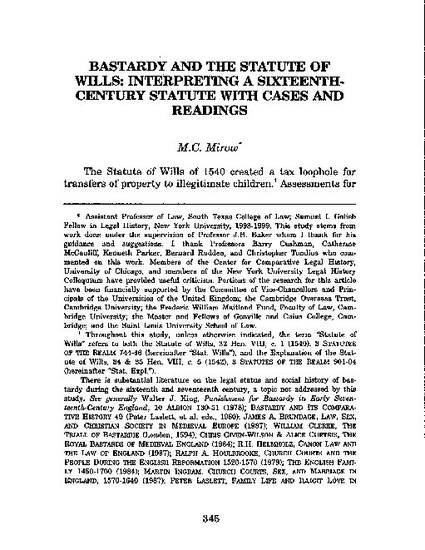
The Statute of Wills of 1540 created a tax loophole for transfers of property to illegitimate children. Assessments for wardships that would normally be imposed on certain transfers of land to children could be effectively avoided by establishing that the donee was illegitimate, and therefore a stranger to the donor for the purposes of the statute. English lawyers in the sixteenth and seventeenth centuries educated their colleagues about this newly available loophole. In the inns of court, lawyers discussed the statutory provisions and recent revenue cases from the Court of Wards. This article sets out the loophole, examines how the statute created a favorable tax situation for illegitimate children of the donor, and demonstrates how the inns and the courts grappled with interpreting ambiguous statutory language.
Available at: http://works.bepress.com/mirowmcfiu/1/
